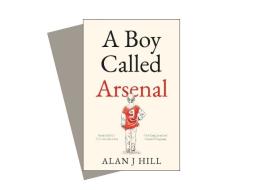
Would I label myself as disabled?

Amber Faulkner explores the question that divides the stammering community and explains why it's one she struggles to answer.
I have never known a time when I didn’t have a stammer. It started the moment I learnt how to talk and I didn’t grow out of it. I have gone through different phases in my life where I have been comfortable identifying as a person who stammers, even been proud of it, but there have also been times when I have tried my absolute hardest to run away from it too.
Stigma & media depictions
After completing my Film Studies dissertation on disabled stereotypes in film, I started to question whether stammering also qualifies as a disability. Looking at any online forum in the stammering community will tell you that it is not a straightforward topic and not one that can be answered easily. Some welcome the term ‘disabled', whereas others detest it. Personally, I am still unable to decide whether it applies to me.
In my opinion, one of the possible reasons people feel so strongly about this label could be due to the unfortunate stigma still surrounding disability. Within society and the media, to be disabled equates to being invisible, ‘less than' and, judging by programmes like Channel 4’s ‘The Undateables’, undesirable. These harmful attitudes being reinforced can impact the public’s perception of disability as negative.
Fluent and non-fluent days
According to the Equality Act 2010, a disability is an ‘impairment that has a substantial and long-term adverse effect on the ability to carry out normal day-to-day activities’. Applying this definition to my stammer, I struggle to settle on a solid answer.
I have days where I feel quite fluent, where my stammer is nothing more to me than a small nuisance. On these days I can happily engage in conversations with people, attend appointments, socialise and go about my day without being bothered by my stammer, and the crippling anxiety and insecurity that often comes with it.
In moments like these I feel unable to do simple things for myself. Every single occasion where I have to speak suddenly becomes the most terrifying and impossible task in the world.
However, on my less fluent days when every word, sometimes every syllable, becomes a brutal and exhausting struggle to expel, even the simplest of tasks can seem impossible. On such days, I become withdrawn, moody, lacking in confidence. I find it difficult to muster up the energy to make small talk. Something as basic as asking how somebody is and having to enter into conversation appears daunting.
Article continues below...

In my head, I have already rehearsed every possible sentence that I may need to say in response. Within seconds I have figured out which words I will struggle on. Then, like a human thesaurus, my mind has raced through every possible substitute word that will be easier for me to say, because I feel like if I was to stammer, it would be humiliating.
How could I possibly subscribe that term to myself when, during a time where my stammer is less apparent, I am capable of doing what everyone else is able to do?
So occasionally I keep my mouth shut. In moments like these I feel unable to do simple things for myself, like phone calls, making doctor’s appointments, ordering a coffee, a small conversation with a cashier in a shop, bumping into a friend in the street; every single occasion where I have to speak suddenly becomes the most terrifying and impossible task in the world.
Labelling
On days such as this I want to shut myself off from the rest of the world. I don’t want to leave my house. It makes me feel incapable of the most basic human skill, which is talking. If we were to compare these days with the definition of a disability, then the label may very well apply to stammering.
However, the big problem I have with using the label ‘disabled' is that if I were to use it on my good days, I would feel like a fraud. How could I possibly subscribe that term to myself when, during a time where my stammer is less apparent, I am capable of doing what everyone else is able to do? Yes, it may take me a little longer to say what I want to say but does that required extra time indicate a disability? I still don’t know for certain.
What do you think? Do you see stammering as a disability? Share your thoughts and Submit Something For The Site.
To read more about the issue, see Is stammering a disability?































